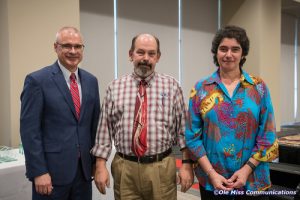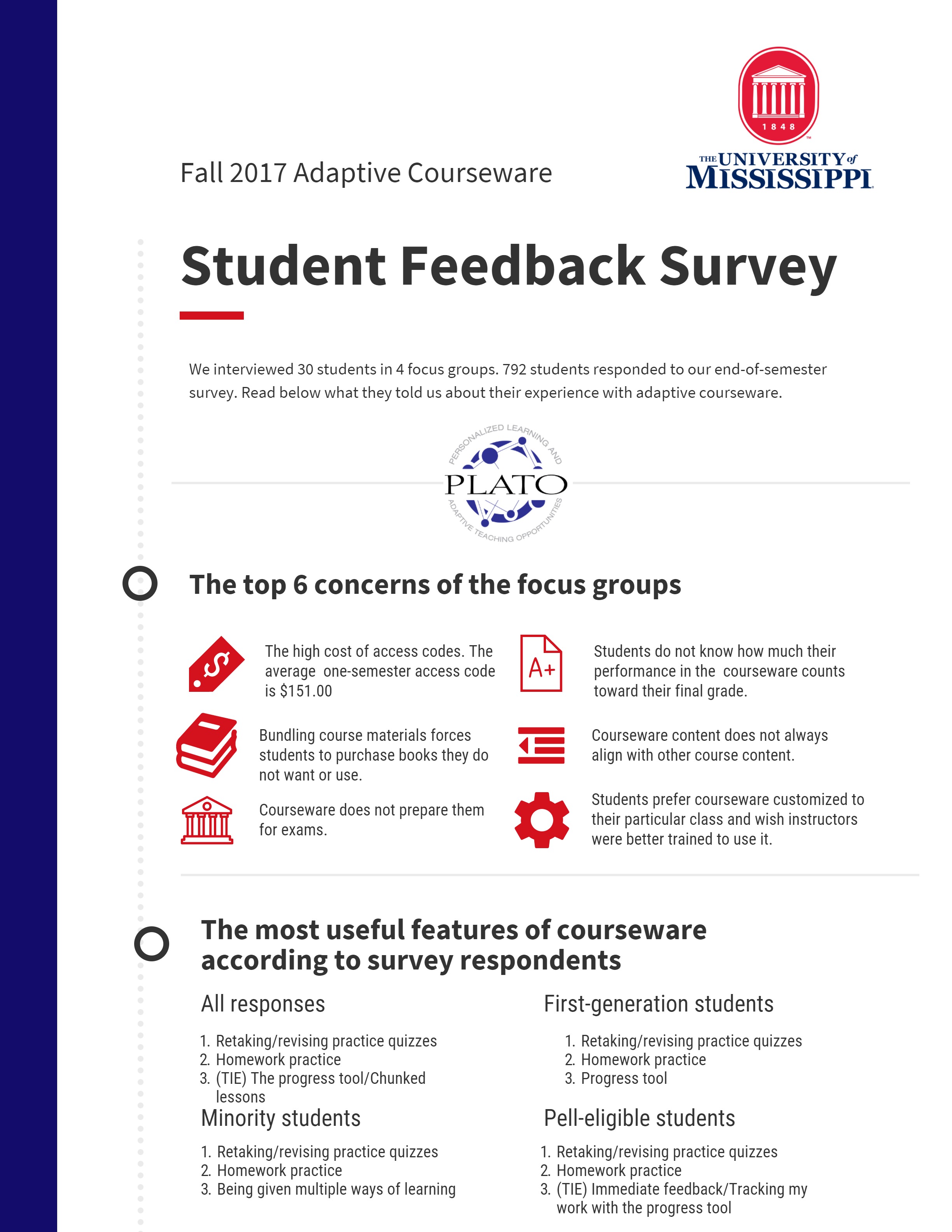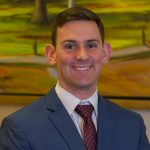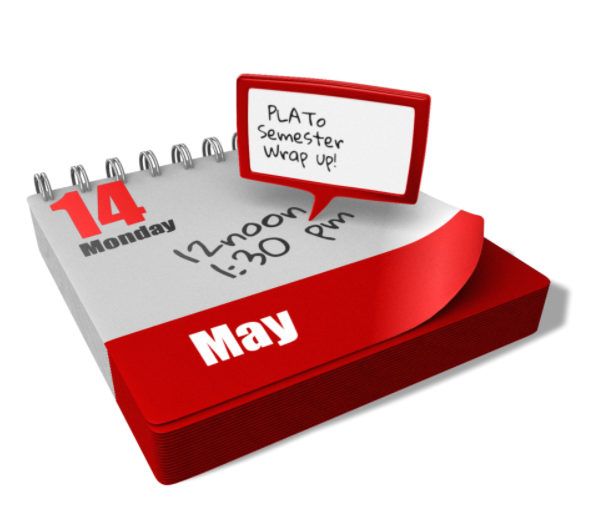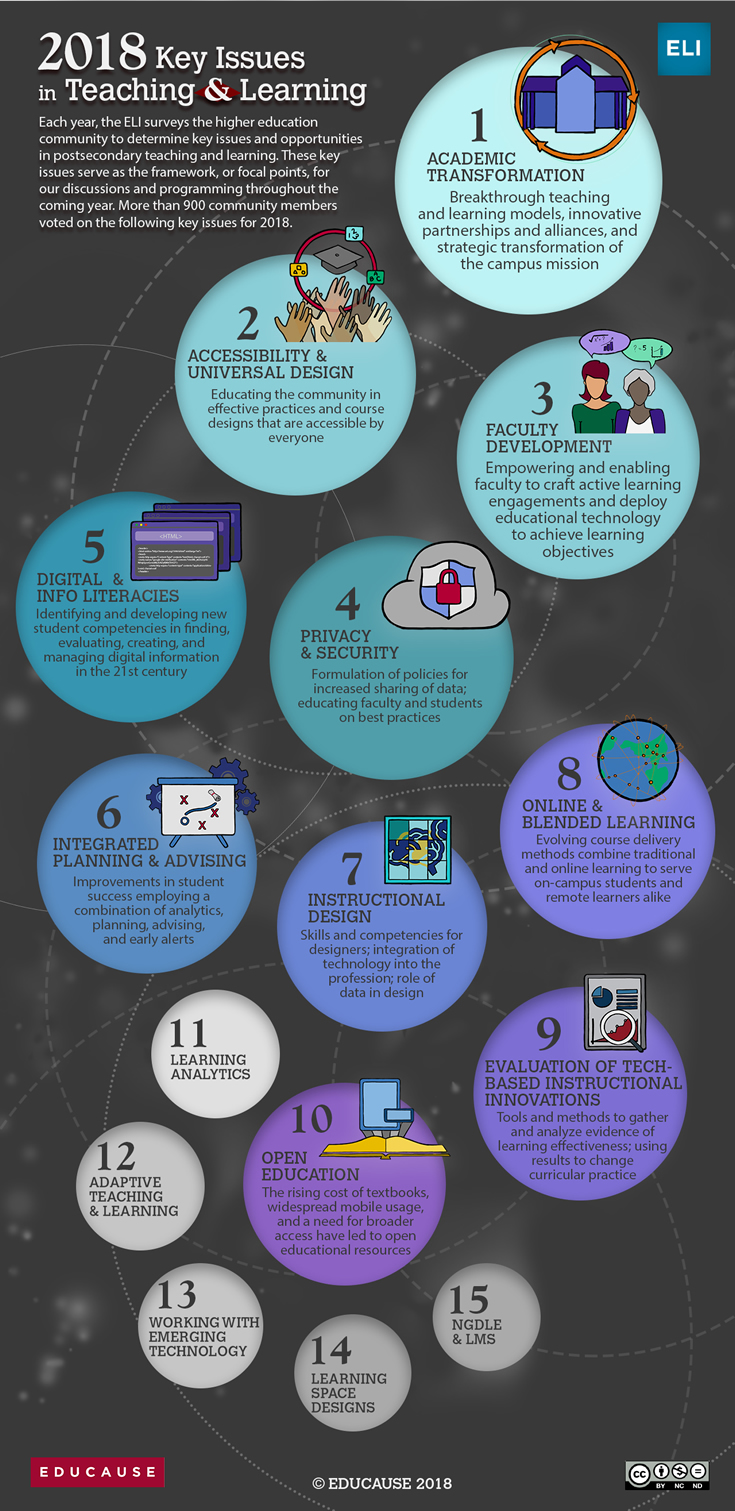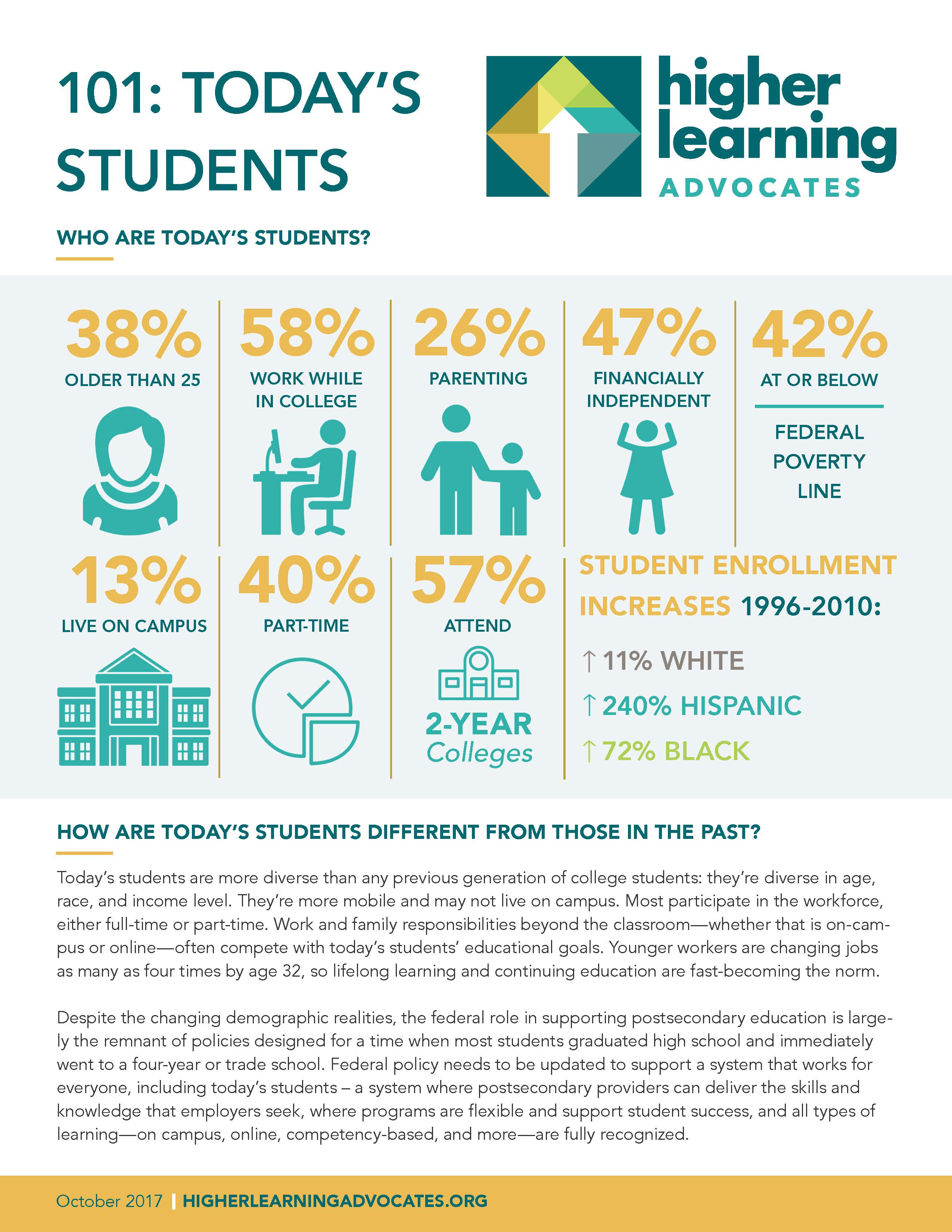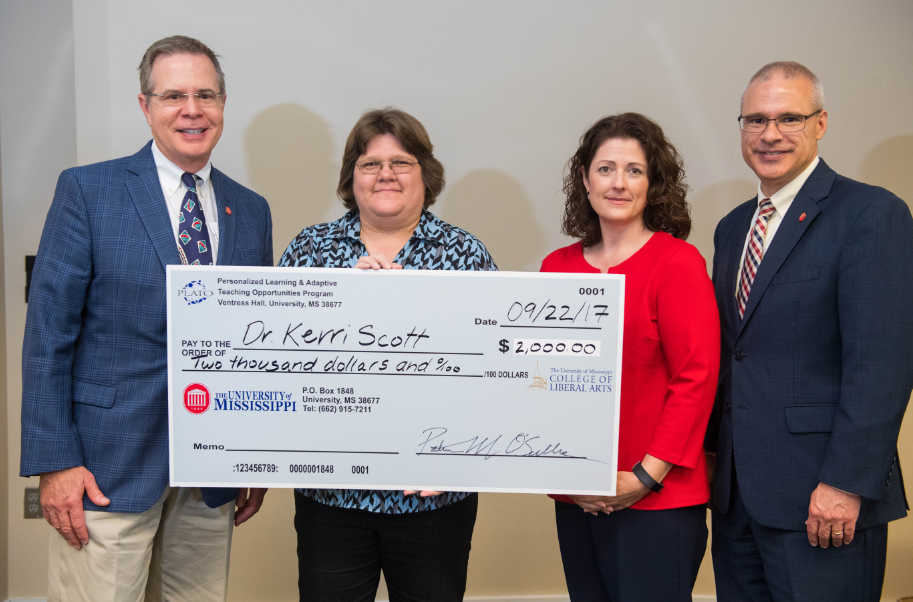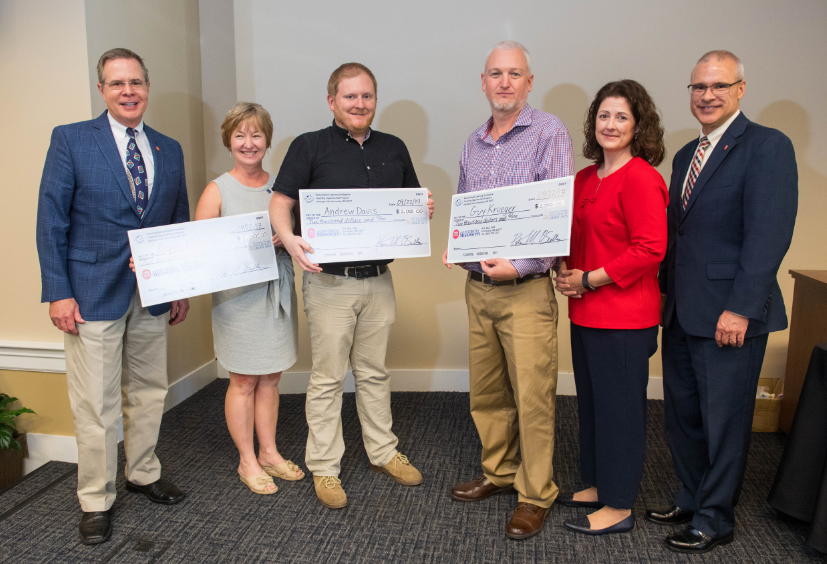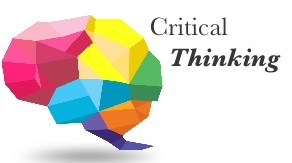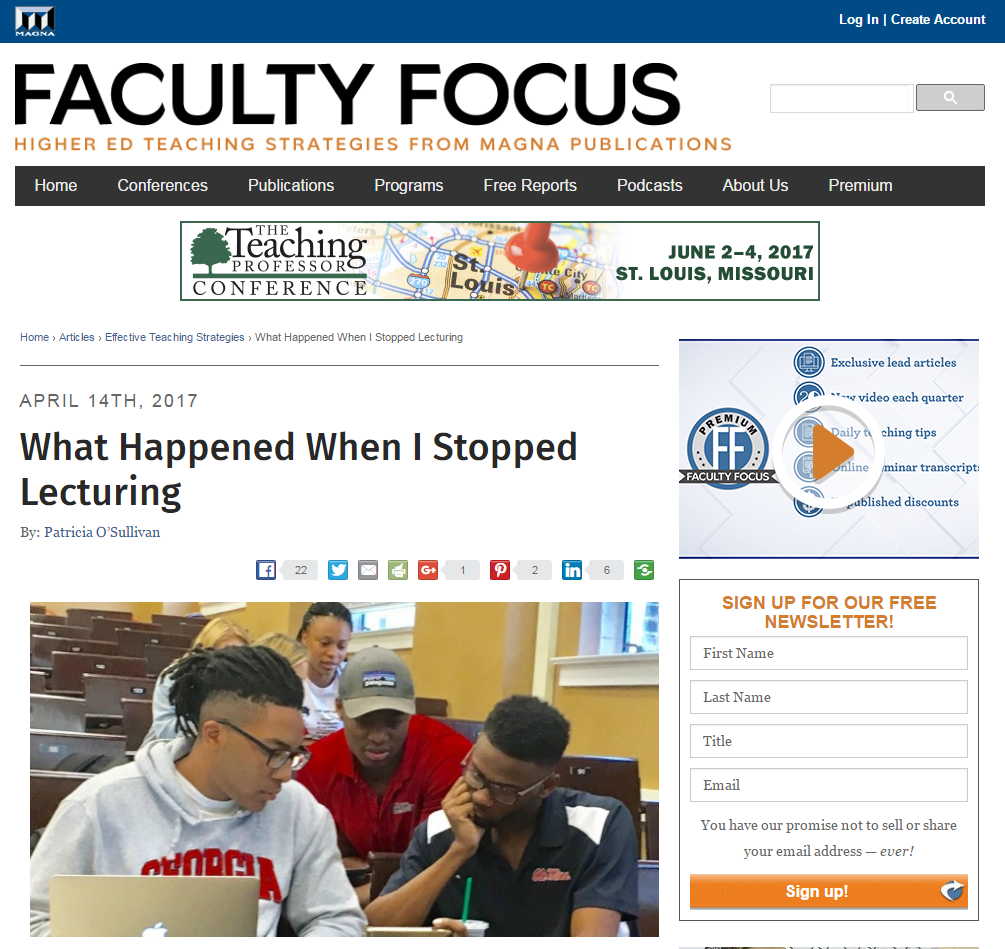UM PLATO Program Newsletter
Fall 2018
It’s been a busy semester with our APLU site visit October 11-12, our awards luncheon October 11, the continuation of our student focus groups, and a new initiative to enrich Supplemental Instruction sessions with learning analytics. In this issue of the PLATO Program Newsletter, we’ll review the winners from the awards luncheon and a prestigious national award, summarize our recent successes, and let you know what is happening with the grant program in the coming months.
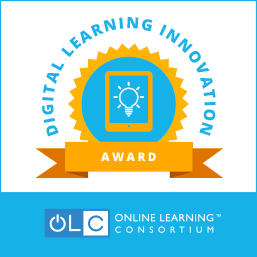 Online Learning Consortium Digital Innovation Faculty Award
Online Learning Consortium Digital Innovation Faculty Award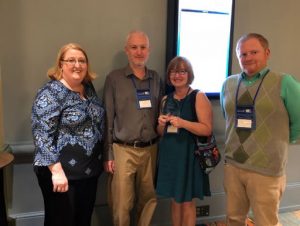
On November 13, 2018, the Writing 101 course directors, Karen Forgette, Assistant Chair of Writing & Rhetoric, Guy Krueger, Core Lecturer, and Andrew Davis, Instructor and Instructional Design and Training Specialist, were honored with a national award by the Online Learning Consortium. We are so proud of the Writing 101 team for this incredible recognition.
PLATO 2018 Teaching Award
Nominees are considered according to how they implemented adaptive courseware in their classes, and how they used courseware data to improve both student success rates and the course itself. The selection committee also considered the faculty’s commitment to professional development in teaching and learning. The awards luncheon was held October 11, 2018.
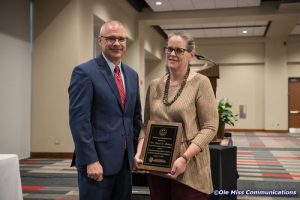 Dr. Carol Britson, Instructional Associate Professor of Biology, (pictured left with Provost Wilkin) is a skilled and dedicated teacher who uses adaptive courseware data to continuously improve her Anatomy and Physiology course, and to link the various elements of her course with a consistent platform. She also uses that platform to regularly solicit student feedback and makes adjustments to her instruction in real time, so as to maximize student learning. Finally, each week, based on the mastery data from various assessments in the course, Dr. Britson develops for her class detailed study plans designed to maximize consistent, mental retrieval practice across multiple formats.
Dr. Carol Britson, Instructional Associate Professor of Biology, (pictured left with Provost Wilkin) is a skilled and dedicated teacher who uses adaptive courseware data to continuously improve her Anatomy and Physiology course, and to link the various elements of her course with a consistent platform. She also uses that platform to regularly solicit student feedback and makes adjustments to her instruction in real time, so as to maximize student learning. Finally, each week, based on the mastery data from various assessments in the course, Dr. Britson develops for her class detailed study plans designed to maximize consistent, mental retrieval practice across multiple formats.
Honorable mention went to Dr. John Wiginton and Dr. Tamar Goulet, pictured with Provost Wilkin.
Dr. Wiginton has improved student success rates and drastically reduced the drop rate for students in his general chemistry class after introducing adaptive courseware, TopHat, and Timed Response Quizzes, and flipping the class so that during class time students are actively learning and practicing chemistry.
Dr. Goulet uses technologies such as clickers and adaptive courseware to learn about her students and to personalize the learning experience for students in her biology 102.
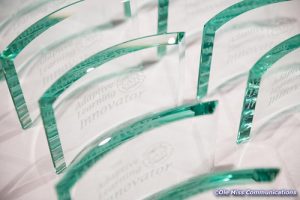 PLATO Innovation Award
PLATO Innovation Award
Innovation in education is a tricky business, especially in higher education, where changing up teaching strategies can result in pushback from students, hesitation from chairs, and innovation fatigue among faculty. We at Ole Miss are lucky to have an administration supportive of teaching innovation, and a faculty dedicated to continuous improvement. This semester, 15 faculty teaching with adaptive courseware agreed to pilot a program that employs learning analytics from adaptive courseware systems to better inform student leaders of Supplemental Instruction about the class’s progress through learning objectives. Because of their willingness to engage in evidence-based teaching, we present the innovation award to the following faculty:
In Mathematics – Michael Azlin, course director of college algebra
For Chemical Concepts, General Chemistry, and Organic Chemistry – Dr. Kerri Scott, Dr. Safo Aboaku, Dr. Daniell Mattern, Dr. Ryan Fortenberry, Dr. Emily Rowland, Dr. Gerald Rowland, and Dr. John Wiginton
For Biology 206, 102 and 104 – Dr. Carol Britson, Dr. Carla Carr, Evelyn Jackson, and Eden Johnson
For elementary and intermediate Spanish – Irene Kaufmann Cotelo and Diana Semmes
For history 121 – Dr. Chiarella Esposito
We also recognized four members of the School of Pharmacy who worked tirelessly this summer to create a brand new class, Becoming a Pharmacist, in adaptive courseware
- Associate Dean of Outcomes Assessment and Learning Advancement, Dr. Alicia Bouldin
- Associate Dean for Academic Affairs, Dr. T. Kristopher Harrell
- Associate Professor of Pharmacy Administration, Dr. Erin Holmes
- Instructional Design and Training Specialist, Sarah Campbell
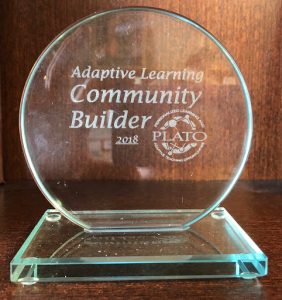 PLATO Community Builder Award
PLATO Community Builder Award
The University has created a culture of teaching excellence by supporting faculty who attend sessions on teaching and learning, and who present at conferences. This year we honored ten individuals who traveled across the nation, and even to Spain, to share their research and experiences with adaptive learning.
In Biology – Dr. Carol Britson and Dr. Tamar Goulet
In Writing & Rhetoric – Assistant Chair, Karen Forgette, Core lecturer Guy Krueger, and instructor, Andrew Davis
In Mathematics – Instructor, Jon-Michael Wimberly
In Chemistry – Dr. John Wiginton
In Spanish – Instructor, Edgar Serrano
PLATO successes Fall 2018
Undergraduate research
- Two undergraduate research assistants conduct focus groups, analyse data, prepare reports, and are contributing to an article being prepared for publication.
- Tyler England (Third-year pharmacy student) presented at the American Association of Colleges of Pharmacy in Boston this past July.
- Christie Forgette (Third-year education major) presented at the WCET Educational Technology Conference in Portland, Oregon on October 25, 2018.
Faculty support
- In the first two years of the grant we distributed $146,500 in stipends to over 70 faculty representing 9 departments.
- In 2018 we paid travel costs for 8 faculty from 5 different departments who gave presentations on adaptive learning at discipline-specific conferences.
Learning analytics
- In August we sponsored 8 vendor training sessions to teach faculty how to use learning analytics from the courseware to identify struggling students early in the semester and to target teaching on the real-time progress of their class.
- This semester we are scaling a pilot of using learning analytics from adaptive courseware to provide SI leaders with real-time data on student mastery of learning objectives. Last semester we had one faculty member pilot the ACSSI program (Adaptive Courseware Supporting Supplemental Instruction) and this semester we have 15 faculty representing 5 departments in the program.
Publications
- Monroe, Stephen, and Patricia O’Sullivan. “The Early Educational Promise of Adaptive Courseware: Scaling the Use of New Technology Across an Institution.” Strategies for Teaching Large Classes Effectively in Higher Education, Cognella Publishing, 2018.
- O’Sullivan, Patricia. “APLU Adaptive Courseware Grant, a Case Study: Implementation at the University of Mississippi.” Current Issues in Emerging ELearning, scholarworks.umb.edu/ciee/. University of Massachusetts Boston Press, Vol. 5, 2018-2019.
- Vignare, K., Lammers Cole, E., Greenwood, J., Buchan, T., Tesene, M., DeGruyter, J., Carter, D., Luke, R., O’Sullivan, P., Berg, K., Johnson, D., & Kruse, S. (2018). A guide for implementing adaptive courseware: From planning through scaling. Joint publication of Association of Public and Landgrant Universities and Every Learner Everywhere, http://www.aplu.org/library/a-guide-for-implementing-adaptive-courseware-from-planning-through-scaling/file
Coming up….
December 10, 2019, Patti O’Sullivan (PLATO) and Katie Waldon (IREP) will travel to Scottsdale, AZ for the Big Data Caucus to discuss how to improve courseware learning analytics with other institutions and courseware vendors. The event is sponsored by the Association for Public Land Grant Universities and Every Learner Everywhere.
January 17-18, 2019, The CETL Winter Workshop with Dr. Todd Zakrajsek, author of Teaching for Learning and Dynamic Lecturing. The event is open to all UM faculty and takes place 9am – 4pm in the Jackson Avenue Center ballroom. Lunch is provided.
